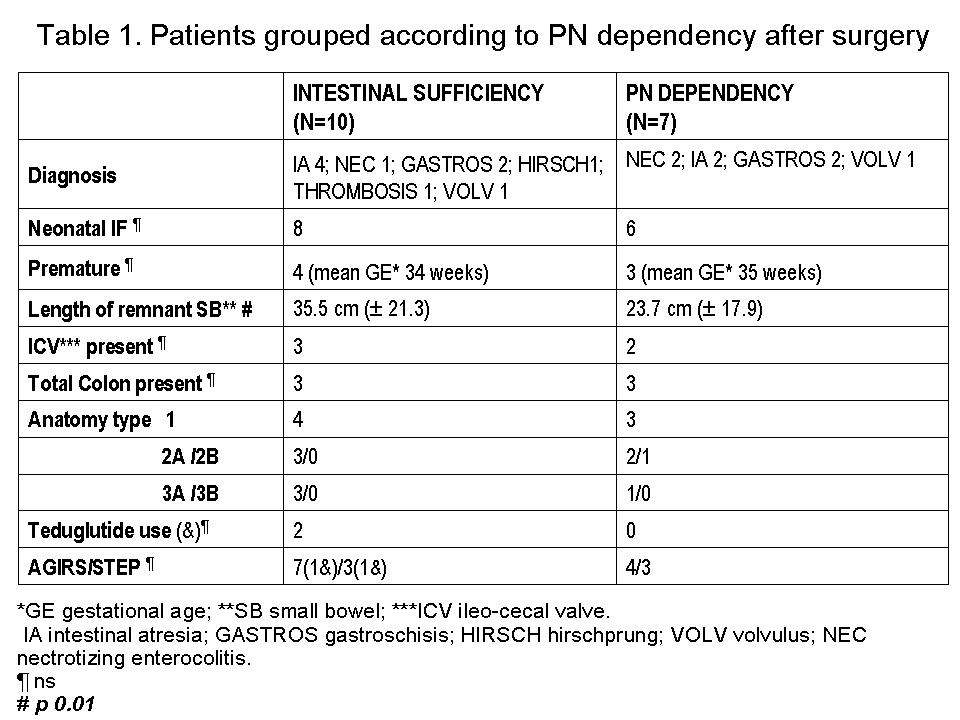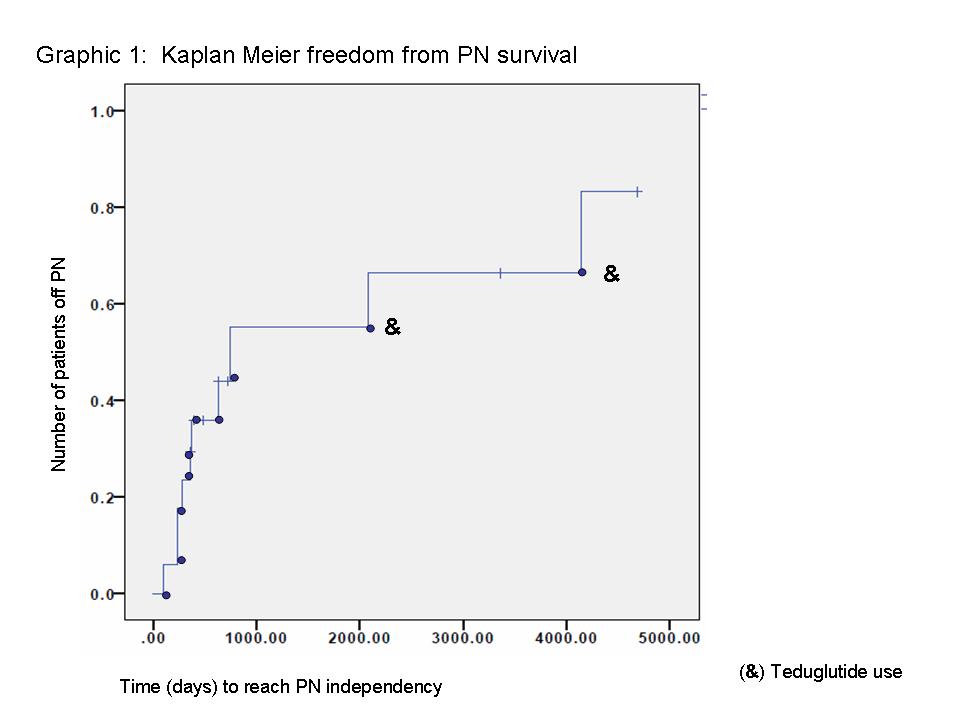Introduction: Autologous gastrointestinal tract reconstruction surgery (AGIRS) and serial transverse enteroplasty (STEPS) are worldwide accepted strategies for children and adults aiming to achieve intestinal rehabilitation. The aim of this study is to show a series of children with intestinal failure (IF) that underwent surgical rehabilitation at a single center and their outcomes.
Material and methods: This is a retrospective review of a prospectively filled database, from March 2006 to December 2018, including every patient <18 years of age with chronic IF that was referred to this program and underwent abdominal surgery with the aim of intestinal rehabilitation. Demographic data, diagnosis, type of surgery, intestinal anatomy (type 1 -terminal jejunostomy-; type 2 -jejuno colonic anastomosis-; type 3 -jejuno ileo colonic anastomosis-; subtypes A < 40 cm and B > 40 cm) and PN independence are analyzed.
Results: From a total number of 102 Pediatric patients (pts) referred with IF, 18 underwent rehabilitation surgery; 17 of them are followed at our center and were included in the analysis. Type of surgery performed was: STEP (6); AGIRS (11). The mean time of follow up after surgery is 65 months (sd ± 49.6). A total of 8 pts gained enteral autonomy after surgery, in a mean time of 12.3 months (sd ± 7), additionally 2 pts reached enteral autonomy on hormonal therapy (teduglutide), initiated 63 and 129 months respectively after surgery (table 1).

Seven pts continued on PN; from those, 2 pts underwent intestinal transplant due to loss of venous accesses, 1 pt died on the intestinal transplant waiting list due to liver failure and 4 pts remain PN dependent with no indication of transplantation (2 are in the process of starting teduglutide treatment). At the end of the studied period, the Kaplan Meier freedom from PN survival is 83.2% (graphic 1).

Conclusions: Surgical rehabilitation should be considered as the first strategy to achieve intestinal autonomy; the indication for STEP or AGIRS should be done in the context of a multidisciplinary team. The only variable analyzed that showed statistical significance for surgical rehabilitation was residual small bowel length. The introduction of hormonal therapy provides an additional benefit, limiting the need for transplantation.
.jpg )